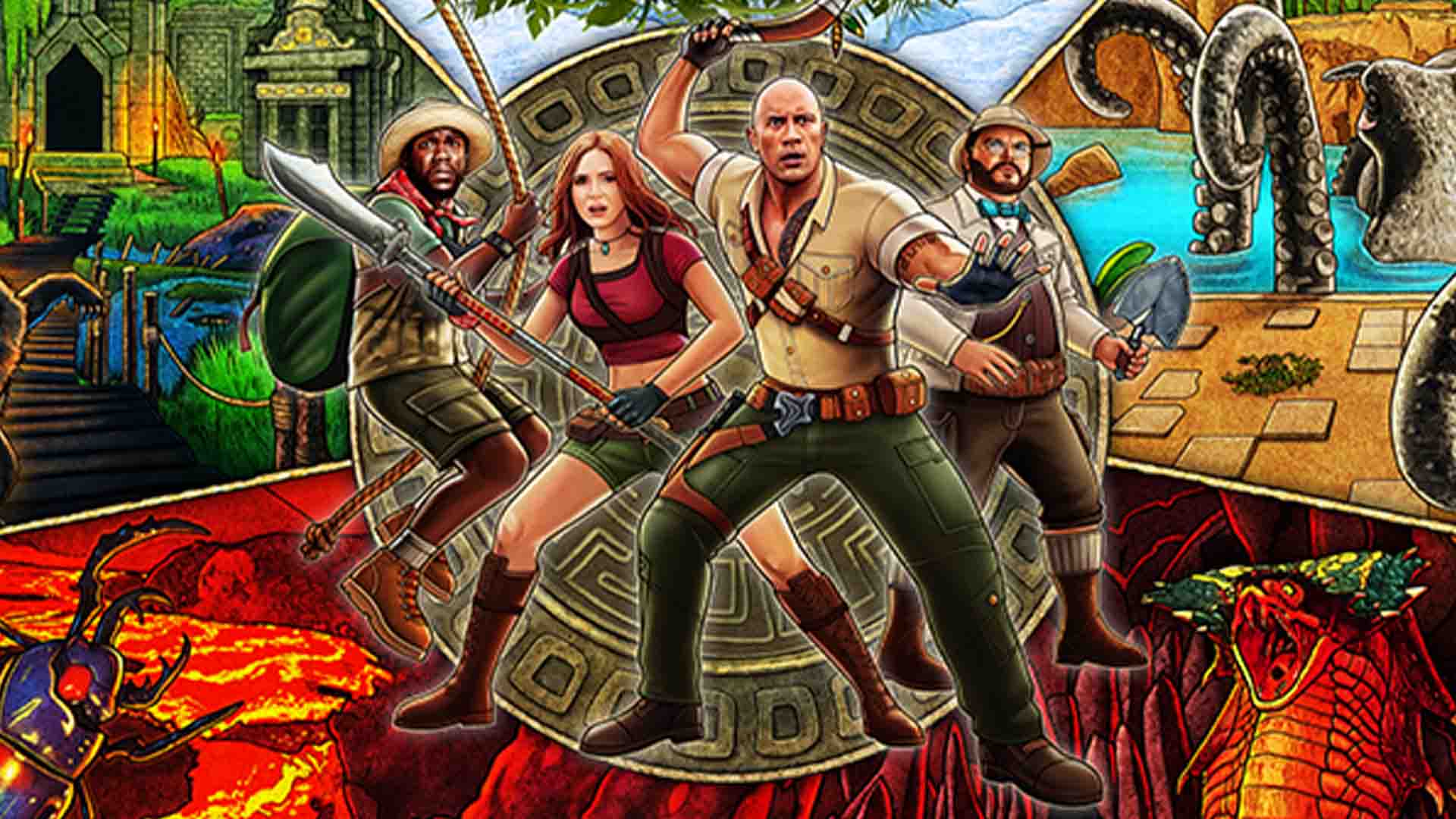
Embark on Epic Quests Together: The Rise of Multiplayer Adventure Games
The allure of adventure games is timeless. From exploring mysterious dungeons to unraveling intricate plots, these interactive stories offer a unique sense of immersion and personal discovery. But what happens when you combine the solitary joy of adventure with the camaraderie and shared experience of multiplayer? The answer is a burgeoning genre of multiplayer adventure games that are redefining the way we experience interactive storytelling.
These games go beyond simple cooperative gameplay, offering intricate narratives, challenging puzzles, and vibrant worlds designed to be explored and conquered together. They tap into the fundamental human desire for connection and collaboration, transforming solitary journeys into shared sagas filled with laughter, strategy, and unforgettable moments.
Defining the Landscape: What Makes a Multiplayer Adventure Game?
Before diving deeper, let’s clarify what distinguishes a multiplayer adventure game from other cooperative experiences. While many games offer cooperative modes or allow players to team up, true multiplayer adventure games are built from the ground up with collaborative storytelling and shared problem-solving at their core. Key elements include:
- Narrative Focus: A compelling storyline drives the experience, often unfolding through dialogue, environmental storytelling, and character interactions. Players are not just completing objectives; they are actively shaping the narrative alongside their companions.
- Exploration and Discovery: Vast and detailed worlds beckon players to uncover secrets, find hidden treasures, and encounter intriguing characters. Exploration is often rewarded with new quests, items, and insights into the game’s lore.
- Puzzle Solving and Collaborative Challenges: Intricate puzzles and obstacles require players to combine their skills and knowledge to overcome them. These challenges often necessitate communication, coordination, and a shared understanding of the game’s mechanics.
- Character Development and Roleplaying: Players typically create or choose unique characters with distinct abilities, backstories, and roles within the group. This encourages roleplaying and allows for emergent storytelling as players navigate the world and interact with each other.
- Persistent World and Shared Progression: The game world evolves and changes based on player actions, creating a sense of consequence and shared history. Players often progress together, unlocking new abilities, crafting powerful items, and building lasting relationships.
The Appeal of Shared Adventure: Why Play Together?
The growing popularity of multiplayer adventure games stems from a unique blend of factors that cater to the modern gamer’s desire for both engaging gameplay and social connection.
- Enhanced Immersion: Sharing the adventure with friends or strangers amplifies the sense of immersion. The collective gasps of awe when discovering a breathtaking vista, the shared frustration of a particularly difficult puzzle, and the triumphant celebration after a hard-fought victory all contribute to a more profound and memorable experience.
- Emergent Storytelling: The dynamic interactions between players can lead to unexpected and hilarious moments, creating emergent storylines that are unique to each playthrough. These spontaneous moments of improvisation and collaboration often become cherished memories.
- Overcoming Challenges Together: Multiplayer adventure games often present challenges that are difficult, if not impossible, to overcome alone. This forces players to rely on each other’s strengths and compensate for each other’s weaknesses, fostering a sense of teamwork and camaraderie.
- Social Connection and Shared Experiences: In an increasingly digital world, multiplayer adventure games provide a valuable opportunity for social connection. They offer a shared activity that can strengthen existing friendships, forge new bonds, and create lasting memories.
- Increased Replayability: The variability introduced by different player choices, character builds, and emergent storylines significantly increases the replayability of these games. Each playthrough offers a unique experience, encouraging players to return to the world again and again.
Examples of Standout Multiplayer Adventure Games:
The landscape of multiplayer adventure games is diverse and constantly evolving. Here are a few notable examples that showcase the genre’s potential:
-
Divinity: Original Sin 2: Widely regarded as a masterpiece of the genre, Divinity: Original Sin 2 offers a deep and intricate narrative, a vast and richly detailed world, and a flexible combat system that encourages experimentation and collaboration. Players can choose from a variety of races, classes, and backgrounds, each with its own unique storyline and abilities. The game’s dialogue system allows for complex conversations and impactful choices that shape the narrative in significant ways. Its turn-based combat is highly strategic and rewarding, requiring players to coordinate their attacks and utilize the environment to their advantage.
-
Sea of Thieves: A swashbuckling pirate adventure that emphasizes player freedom and emergent storytelling. Players can sail the open seas, hunt for treasure, battle rival crews, and encounter mythical creatures. The game’s sandbox environment encourages creativity and improvisation, allowing players to forge their own pirate legends. The focus on naval combat and cooperative ship management creates a unique and exhilarating multiplayer experience.
-
Valheim: A survival and exploration game set in a Viking-inspired purgatory. Players must gather resources, build shelters, craft weapons, and battle mythical creatures to prove themselves worthy of Valhalla. The game’s challenging survival mechanics and vast open world encourage collaboration and exploration. The ability to build elaborate settlements and sail the seas together creates a strong sense of community and shared accomplishment.
-
Monster Hunter: World: A cooperative action RPG where players hunt massive and dangerous monsters in a variety of exotic environments. The game’s challenging combat and deep crafting system require players to coordinate their attacks and utilize specialized equipment. The thrill of taking down a powerful monster with friends is incredibly rewarding, fostering a sense of teamwork and camaraderie.
-
Deep Rock Galactic: A cooperative first-person shooter where players take on the role of space dwarves mining for resources on a hostile alien planet. The game’s procedurally generated levels and challenging combat create a unique and replayable experience. The focus on teamwork and specialized roles, such as the Engineer, Gunner, Driller, and Scout, encourages players to rely on each other’s strengths and compensate for each other’s weaknesses.
The Future of Multiplayer Adventure Games:
The future of multiplayer adventure games is bright, with developers constantly pushing the boundaries of interactive storytelling and collaborative gameplay. We can expect to see:
- More Sophisticated AI and Dynamic Worlds: Improved AI will create more believable and engaging NPCs, while dynamic world systems will allow the environment to react more realistically to player actions.
- Deeper Character Customization and Roleplaying: More robust character creation tools and branching storylines will allow players to create truly unique characters and experience personalized narratives.
- Seamless Integration of Single-Player and Multiplayer: Games will blur the lines between single-player and multiplayer experiences, allowing players to seamlessly transition between solo exploration and cooperative quests.
- Increased Focus on Player Agency and Emergent Storytelling: Games will empower players to shape the narrative in meaningful ways, creating emergent storylines that are unique to each playthrough.
- Integration of New Technologies like VR and AR: Virtual and augmented reality will offer new levels of immersion and social interaction, allowing players to experience adventure games in entirely new ways.
Conclusion:
Multiplayer adventure games represent a significant evolution in interactive storytelling. They combine the engaging narratives and intricate puzzles of traditional adventure games with the social connection and collaborative gameplay of multiplayer experiences. By fostering teamwork, encouraging creativity, and providing a shared sense of accomplishment, these games offer a unique and rewarding way to experience adventure. As technology continues to advance and developers continue to innovate, the future of multiplayer adventure games is bright, promising even more immersive, engaging, and unforgettable experiences for players around the world. So gather your friends, sharpen your swords, and prepare to embark on an epic quest together – the world of multiplayer adventure awaits!

